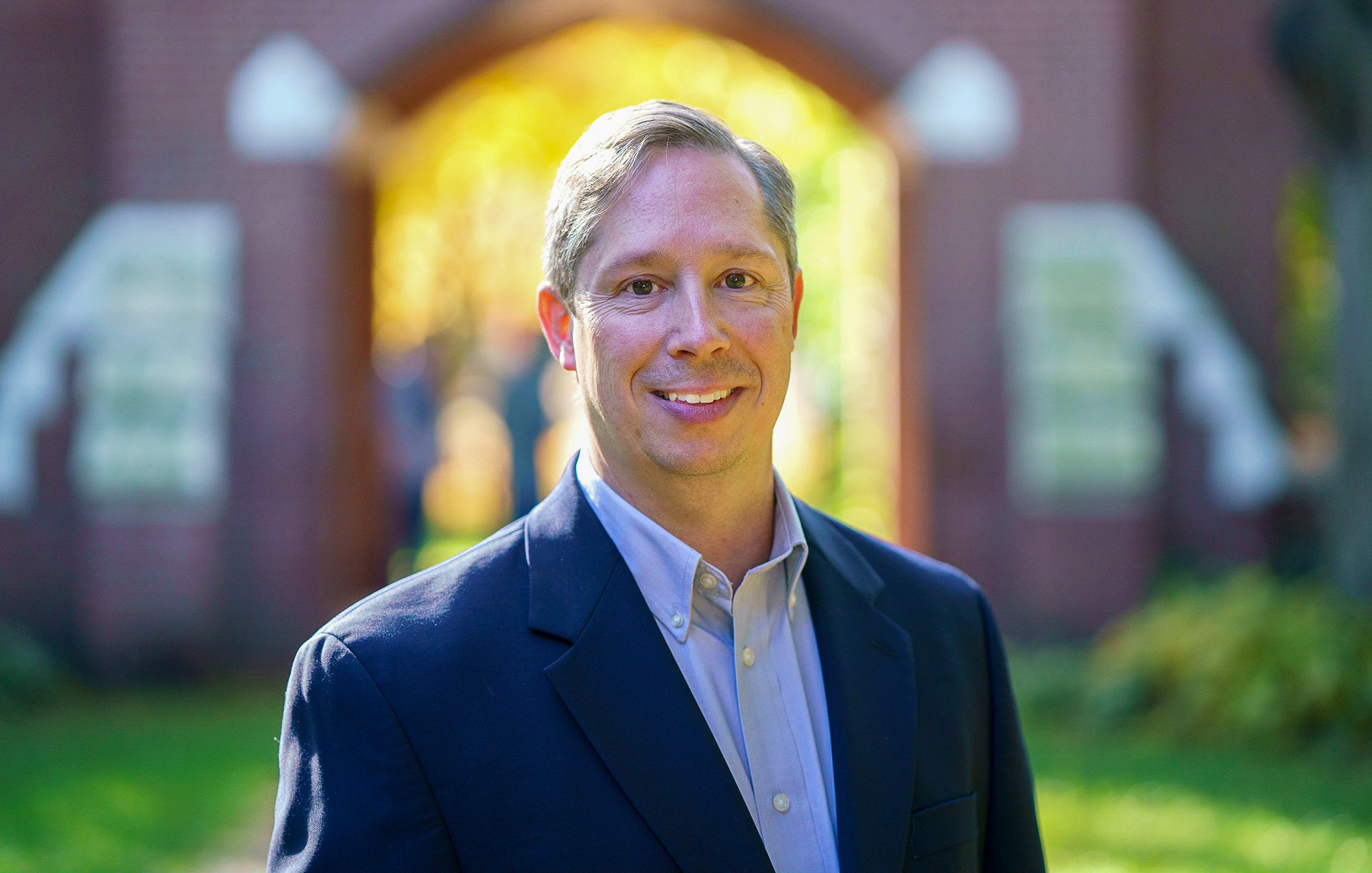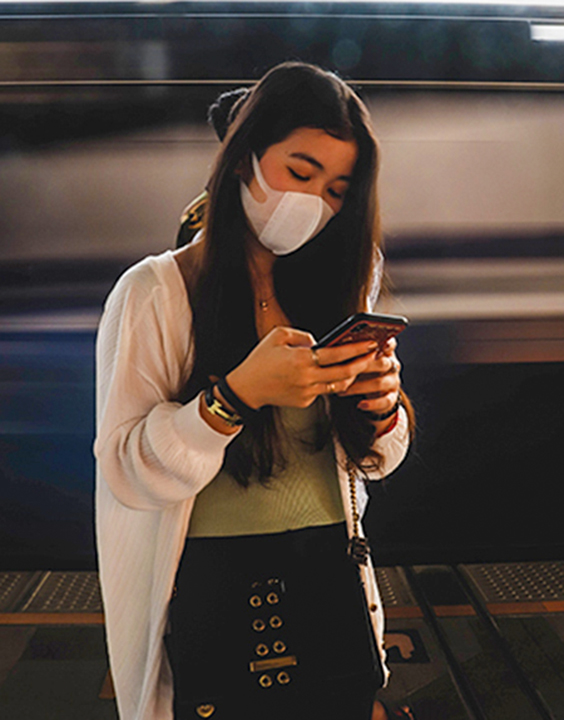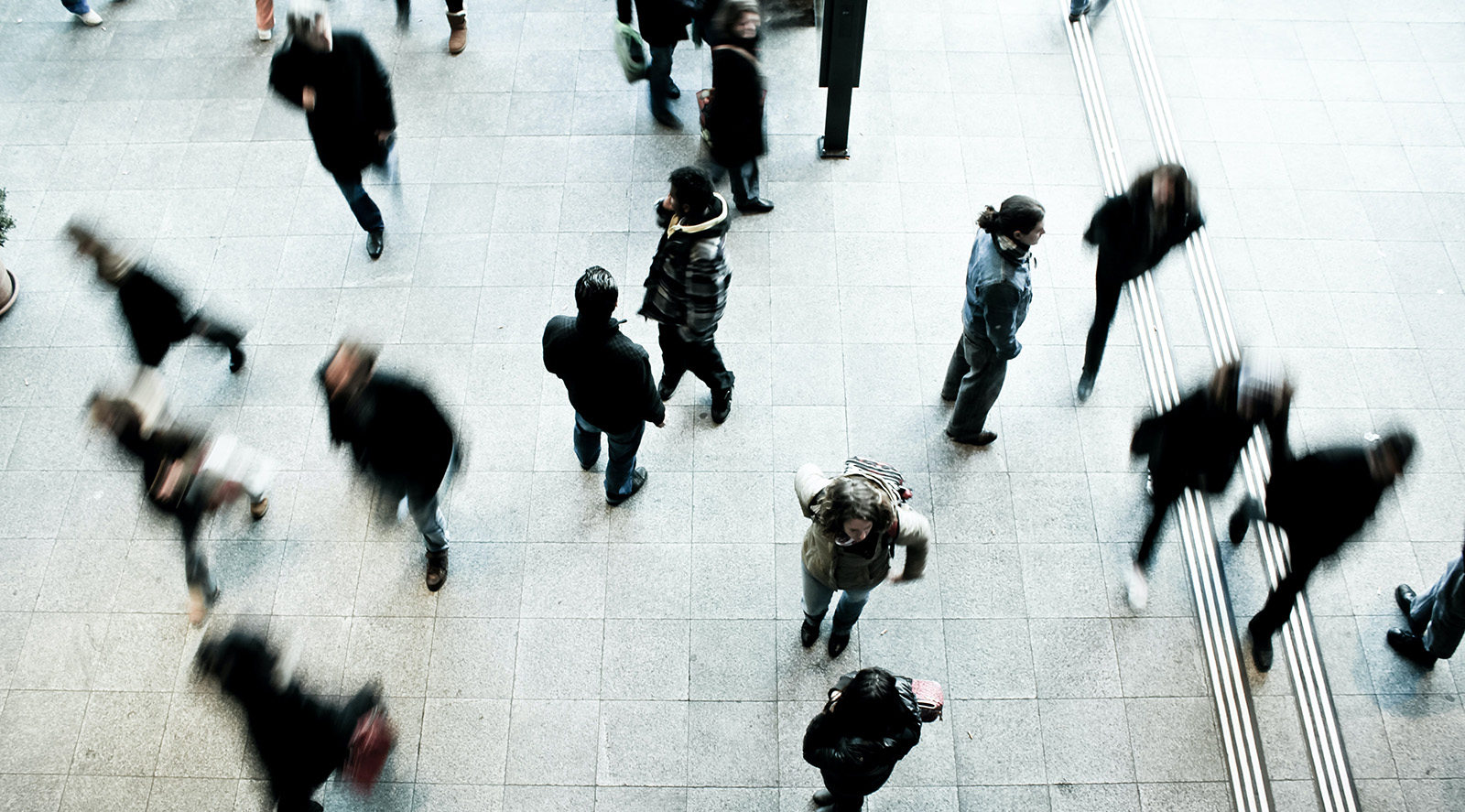As the COVID-19 pandemic grew into a worldwide, formidable foe earlier this spring, Professor of Psychology Christian Meissner knew that his research, which focuses on ways to accurately retrieve information from individuals’ memories, could enhance COVID-19 contact tracing efforts.
Contact tracing is the process of identifying, contacting and tracking people who have been exposed to someone who has tested positive for COVID-19. The effectiveness of these methods relies on the infected person’s ability to accurately recall past events and personal interactions.
“As the pandemic began to emerge, it became clear that effective contact tracing would be vitally important to controlling the spread of the virus,” Meissner said. “I began to assess whether the various principles and tactics we have developed for forensic and intelligence interviewing might be applicable to improving the efficacy of contact tracing interviews.”
Outside of COVID-19 contact tracing, Meissner’s research focuses on eliciting memories and information from individuals, particularly in the forensic and intelligence arenas. He conducts empirical studies in applied cognition, including the role of memory, attention, perception and decision processes in real-world tasks. Meissner’s work is highly respected in the intelligence community, and he has received more than $16 million in grants from agencies like the National Science Foundation; the U.S. Departments of Defense, Justice and Homeland Security; and the U.S. intelligence community.

A ‘memorable’ team
In February, Meissner reached out to Florida International University colleagues Ronald Fisher, professor of psychology; Deborah Goldfarb, legal psychology professor; and Jacqueline Evans, associate professor of psychology, who all conduct memory-recall research using the cognitive interview method. This method, first developed by Fisher, is proven to significantly increase the accuracy of individuals’ memories.
“It occurred to us that this was likely the solution for pandemics such as this. We began developing the protocol and brought a team together to push it forward.”
Meissner and the team quickly realized that the traditional person-to-person method for cognitive contact tracing interviews could risk the interviewers’ health during the COVID-19 pandemic. This led them to develop a self-administered interview, a concept first developed by Fisher and other collaborators. The self-administered interview incorporates elements of the cognitive interview, but allows individuals to complete the survey online or on paper without the help of an interviewer.
“It occurred to us that this was likely the solution for pandemics such as this. We began developing the protocol and brought a team together to push it forward,” Meissner said.
Financial aid
Launching a research study can be an arduous task under normal circumstances. So, in the middle of a pandemic, expediting research requires extra tenacity, determination and funding. Meissner had the first two areas covered, no problem. He needed help with the funding component. Enter alumni Mark and Wendy Stavish.
“Given the COVID-19 pandemic, we could immediately see the importance of Chris’ proposal, its potential impact and the high likelihood of success given Chris’ research track record.”
Mark (’76 psychology, MS ’78 industrial relations) and Wendy (’77 sociology) are long-time supporters of Iowa State’s social sciences programs, including the Stavish Chair in Social Sciences.
“We reviewed Chris’ proposal and said ‘yes’ the same day,” Wendy said.
“We knew about Chris’ scholarship and research focus due to our long-standing support of the psychology-law concentration within the psychology department,” Mark said. “Given the COVID-19 pandemic, we could immediately see the importance of Chris’ proposal, its potential impact and the high likelihood of success given Chris’ research track record.”
Meissner is thankful for the Stavishes’ financial backing.
“I am so grateful for Mark and Wendy Stavish’s support of this project, as it will allow us to conduct a well-designed test of the protocol with a large national sample,” Meissner said.
First, a study
Thanks to the Stavishes’ generous donation, Meissner will complete an efficacy study of the self-administered cognitive contact tracing interview this summer to ensure it performs as intended. He is confident the study will establish an accurate data set on which to create a robust, public COVID-19 contact tracing interview in the near future.
“Thankfully, we will have the opportunity to administer the protocol to people who are now beginning to return to some degree of normalcy. This is important,” Meissner said. “If we had tested the protocol when significant social distance measures were enacted, people would have few contacts to report about.”

Jogging memories
Once the COVID-19 self-administered contact tracing interview is implemented publicly, health departments will integrate it into their websites or online platforms. Both electronic and paper versions, which will take about 30 minutes to complete, will be translated into a variety of languages.
The survey’s questions will help individuals remember specific people and events by prompting them to think about who they have interacted with during a certain timeframe.
“We draw from principles of cognitive psychology that suggest we can remember more if we can recall the physical and mental context of the situation, or are provided with cues that are associated with the people and places we have interacted with,” Meissner said.
For example, individuals might be asked to close their eyes and vividly recall a party they attended—who is there, what do they hear, where are they sitting? Or, they may be asked to remember recent appointments or work activities.
“The prompts and instructions provided to people in the self-administered protocol are designed to be easily understood and implemented by people as they regulate their own retrieval from memory,” Meissner said.
“We draw from principles of cognitive psychology that suggest we can remember more if we can recall the physical and mental context of the situation, or are provided with cues that are associated with the people and places we have interacted with.”
After an individual has completed the self-administered interview, the information will be submitted to public health investigators who will either follow up with the respondent or reach out to the individuals identified as their contacts. In turn, those people will also take the survey and be encouraged to self-quarantine.
“Hopefully, our findings will be available to the public health community later this summer, and we may be able to impact how public health investigators conduct interviews if a second wave emerges in the fall,” Meissner said.
